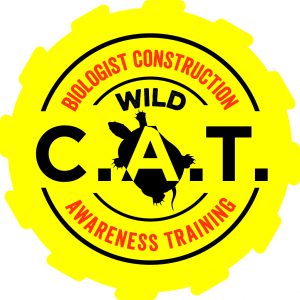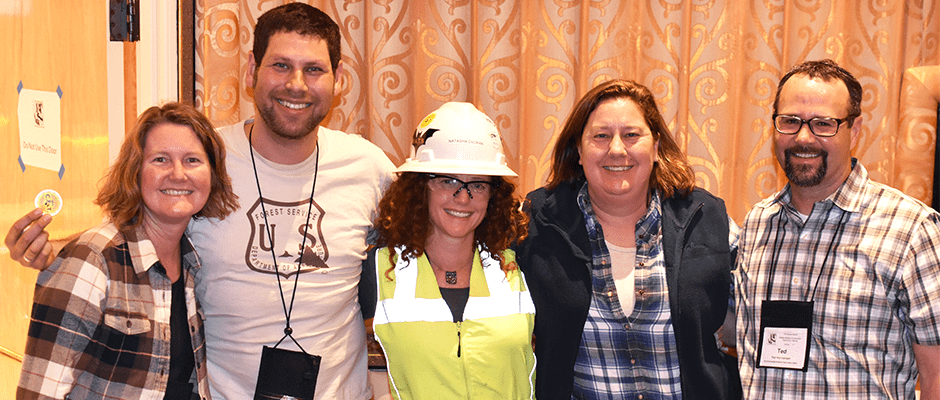Share this article
TWS Western Section offers novel training
For biologists, being in the field doesn’t always mean a walk in the forest. Biologists often find themselves donning a hardhat and going to work on a construction site. Sometimes they’re there as environmental consultants. Sometimes they’re representing state and federal agencies, utility companies or other organizations.
Yet biology degree programs rarely teach the concepts they need to navigate a construction site.
 That’s why the TWS Western Section developed Wildlife Biologist Construction Awareness Training. Participants who complete the half-day workshop receive a letter from the TWS Western Section and a WildC.A.T. sticker for their hardhat. The letter and sticker indicate to construction personnel and future employers that the biologist has received the basic training necessary to conduct environmental monitoring on an active job site.
That’s why the TWS Western Section developed Wildlife Biologist Construction Awareness Training. Participants who complete the half-day workshop receive a letter from the TWS Western Section and a WildC.A.T. sticker for their hardhat. The letter and sticker indicate to construction personnel and future employers that the biologist has received the basic training necessary to conduct environmental monitoring on an active job site.
“This workshop is a good candidate for development of a standard curriculum that could be shared among chapters,” said Jessica Martini-Lamb, head of the professional development committee for the Western Section. The committee is considering bundling the program for broader use.
WildC.A.T. was developed as a primer for recent graduates, early career professionals and regular construction monitors who may enter active work sites. Topics include an introduction to construction job sites, situational awareness, health and safety basics, environmental permits, compliance monitoring and enforcement, effective communication techniques and tools of the trade. Taught by experienced wildlife biologists, construction personnel and health and safety officers, the goal of the workshop is to empower new field staff to assess their surroundings and ask the right questions.
“Consistency is key,” explained Elizabeth McNamara, a biologist who attended the workshop. “You don’t want people coming out to a construction site and learning on their feet. You want someone who knows what is expected of them, and what to expect of the people and equipment.”
The workshop is gaining in popularity, said Matthew Bettelheim, who developed the idea with fellow TWS member Erika Walther. The workshop debuted at the Western Section’s annual meeting in Pomona, Calif., last year. At its 2017 annual meeting in Reno, Nev., the workshop had a full attendance of biologists with a range of experience levels.
“In only its second year,” Bettelheim said, “WildC.A.T. already appears to be attracting a healthy mix of early career and more seasoned professionals.”
Header Image: WildC.A.T. workshop participants receive a letter of completion and a WildC.A.T. sticker for their hardhats that indicate they have completed the course.








